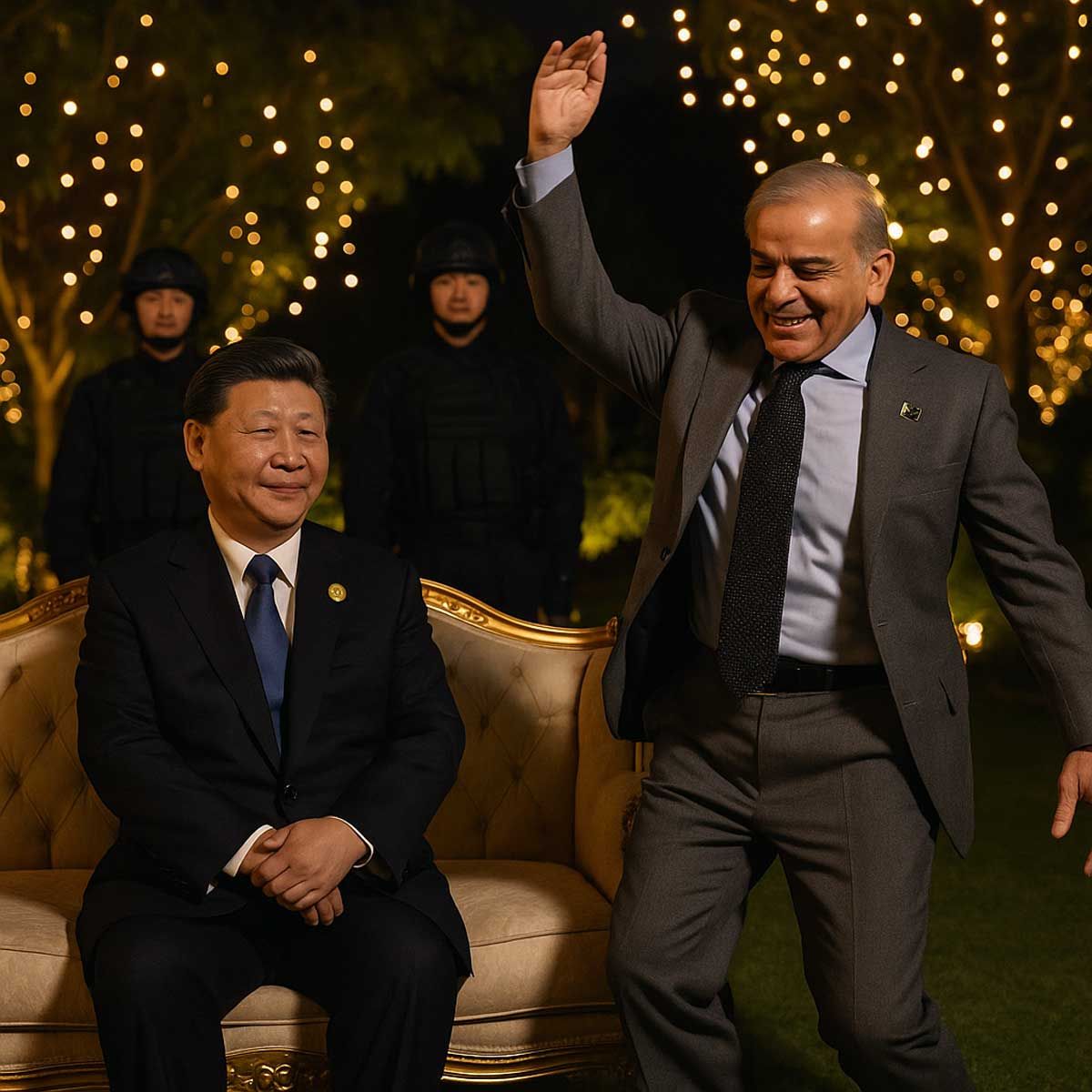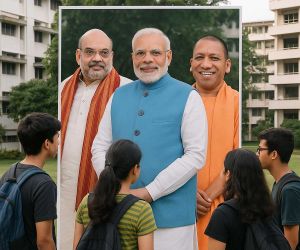MORE COVERAGE
Twitter Coverage
Satyaagrah
Written on
Satyaagrah
Written on
Satyaagrah
Written on
Satyaagrah
Written on
Satyaagrah
Written on
JOIN SATYAAGRAH SOCIAL MEDIA
US, UK and France block Pakistan and China at UN by halting bid to sanction Balochistan Liberation Army as Balochistan faces CPEC exploitation, poverty and brutal repression

The United States, the United Kingdom, and France have together stopped an attempt made by Pakistan and China at the United Nations to impose sanctions on the Balochistan Liberation Army (BLA) and its special fighting wing, the Majeed Brigade.
|
The proposal, placed under the framework of the United Nations 1267 sanctions regime, was designed to treat these Baloch groups in the same way as organisations linked with Al-Qaeda and ISIL. However, the Western nations put a brake on the effort by placing it on a “technical hold” for six months, making it clear that they found no solid proof connecting these organisations to the global terror networks that the regime was originally created to control.
This was a significant moment because it came just weeks after Washington, despite its warming ties with Islamabad, had already declared both the BLA and the Majeed Brigade as Foreign Terrorist Organisations (FTOs). The difference between how the U.S. dealt with the groups in its domestic law and how it acted at the UN showed the complicated and often contradictory nature of international politics. While the U.S. wanted to appear supportive of Pakistan at a bilateral level, it was not ready to push the same narrative at the world stage without evidence.
The UN 1267 regime, first adopted in 1999, was meant to target organisations and individuals connected to Al-Qaeda, the Taliban, and ISIL. Once a person or group is listed under this regime, they face restrictions such as travel bans, freezing of financial assets, and denial of access to weapons. This is a serious international tool designed to squeeze support networks of violent groups and limit their global reach.
Pakistan and China had jointly applied to bring the BLA and Majeed Brigade under this list. Their argument was based on the claim that these groups, along with ISIL-K (Khorasan), Al-Qaeda, and the Tehrik-e-Taliban Pakistan (TTP), were carrying out cross-border attacks from Afghanistan. Ambassador Asim Iftikhar Ahmed, Pakistan’s Permanent Representative to the UN, stressed in his address on 17th September that terrorism from Afghan soil remained the country’s biggest national security danger. He urged the Taliban-led government in Kabul to stand by its promises on counterterrorism and said, “We hope the Council will act swiftly on this listing to curb their terrorist activities.”
Yet, Islamabad’s hope of gaining international backing was blocked by its own partners in the West. For the next half year at least, the country’s effort to paint its Baloch opponents as part of a global terror network has been effectively stopped. The message was loud: allegations cannot replace evidence, and international decisions at the UN demand a far stronger basis than the political interests of two states.
|
Pakistan’s Balochistan Dilemma
Balochistan is the largest province of Pakistan in terms of land area. It carries huge importance because of its geographic location and its natural wealth. The province is full of valuable resources such as oil, gas, coal, and minerals. But in spite of this, the people of Balochistan live in deep poverty, while the benefits of the province’s wealth are diverted elsewhere, mostly to Punjab, which remains the political and economic hub of Pakistan.
The relationship between Balochistan and the Pakistani state has been full of conflict. Since 1948, when the former Baloch chiefdoms were forcibly absorbed into the new Islamic Republic, the province has seen repeated uprisings. To date, there have been five major Baloch “wars of independence.” Each time, the uprisings were crushed with heavy force. Accounts of arbitrary arrests, torture, executions, and kidnappings have become part of the bitter history of how Islamabad has handled the Baloch question.
For decades, two things have happened side by side. On one hand, Islamabad has used the iron hand of the state to crush the voice of the Baloch. On the other hand, it has extracted the region’s natural wealth without giving its people a fair share. This double policy has created anger, mistrust, and a sense of betrayal among the Baloch population.
|
In recent years, this exploitation has grown with the entry of China under the China-Pakistan Economic Corridor (CPEC). The project, worth $62 billion, has been promoted as a lifeline for Pakistan’s economy and a sign of the “all-weather friendship” between Beijing and Islamabad. But for the Baloch, it has been a nightmare. The project is seen not as development but as a plan to expand Chinese influence, take control of the Baloch coast, and reduce the local people to a minority in their own land. Gwadar, once a quiet port town, has become central to this plan as China eyes access to warm waters.
The human cost has been severe. Hundreds of thousands of Baloch have been displaced from districts surrounding CPEC projects. Small villages and towns have been destroyed, many set on fire to clear land and ensure that the population does not interfere with the so-called development. Families have been forced to leave their homes, their land, and their belongings behind. Pakistani security forces have acted as the protectors of Chinese engineers and officials, ensuring the safety of the project but crushing the rights of the people.
The Baloch community has not stayed silent. They have consistently raised their voices against the exploitation and violence. Yet, instead of listening, the state has chosen to silence them with greater force. Rather than addressing decades of grievances, Pakistan and its Chinese partner have worked to brand the Baloch resistance as terrorism, hoping to strip the struggle of legitimacy in the eyes of the international community. The recent failed attempt at the UN is one more chapter in this long story of power, resistance, and suppression.
 Support Us
Support Us
Satyagraha was born from the heart of our land, with an undying aim to unveil the true essence of Bharat. It seeks to illuminate the hidden tales of our valiant freedom fighters and the rich chronicles that haven't yet sung their complete melody in the mainstream.
While platforms like NDTV and 'The Wire' effortlessly garner funds under the banner of safeguarding democracy, we at Satyagraha walk a different path. Our strength and resonance come from you. In this journey to weave a stronger Bharat, every little contribution amplifies our voice. Let's come together, contribute as you can, and champion the true spirit of our nation.
 |  |  |
| ICICI Bank of Satyaagrah | Razorpay Bank of Satyaagrah | PayPal Bank of Satyaagrah - For International Payments |
If all above doesn't work, then try the LINK below:
Please share the article on other platforms
DISCLAIMER: The author is solely responsible for the views expressed in this article. The author carries the responsibility for citing and/or licensing of images utilized within the text. The website also frequently uses non-commercial images for representational purposes only in line with the article. We are not responsible for the authenticity of such images. If some images have a copyright issue, we request the person/entity to contact us at This email address is being protected from spambots. You need JavaScript enabled to view it. and we will take the necessary actions to resolve the issue.
Related Articles
- Indian Army pacing towards self-reliance under 'Atmanirbhar Bharat Abhiyaan’ campaign: Indigenisation of defence manufacturing is helping to build a new and strong India to keep neighbour aggression in check
- Kashmir humiliates Pakistan and gives cold shoulder to Pakistan sponsored ‘Kashmir Solidarity Day’ as no public speeches, rallies on the eve from the public or separatist movements or any special prayers in mosques
- Rahul Gandhi schooled by Externals Affair Minister Dr. S Jaishankar of history lessons and is condemned by Law Minister Kiren Rijiju for his remarks on the judiciary and Election Commission
- Pakistan has repeatedly raised concerns about atrocities on Muslims anywhere in the world, but joined China in the exploitation of Uyghur Muslims in Xinjiang: China has done large investments in Pakistan
- "सहादत है कि हिंदू दिल को रब के आगे झुका दिया": Pakistani Imam commends Ayesha's bravery for ‘accepting’ an unworthy kafir’s heart, which now will have to bow before Allah, and none of Hindu's good works would be recognized as he didn't die a Muslim
- Video evidence shows there were live bats in Wuhan lab, DRASTIC exposes Peter Daszak again
- "1 Muslim = 10 Hindus": Pakistan doesn’t hate India, it hates Hindus. Right from ideological founder of Pakistan to physical founder to etymology to liberals to common masses to extremists to artists to politicians to everything in Pakistan hates Hindus
- ‘Debt trap’ policy of China to undermine sovereignty of nation-States has begun to backfire
- "सूरह अल-मुल्क": A Belgian woman gang-raped & abandoned in Islamabad, just like American vlogger Arabela Urpi's horrific ordeal in Punjab, exposing Pakistan's alarming trend with over 22,000 rape cases reported in 6 years but a conviction rate of only .3%
- "गुस्ताखएरसूल की एक ही सजा, सर तन से जुदा": Lahore - Woman assaulted by a mob for wearing a dress with Arabic words, mistakenly believed to be Quranic verses, it was later found to be calligraphy of words like 'beautiful' and 'sweet', forced to apologize
- The Islamic Doctrine of Permanent War: Jihãd and Religious Riot
- "Everything is changing. People are taking their comedians seriously and the politicians as a joke": China keen on importing donkeys and dogs from Pakistan, announced Senator Abdul Qadir as a cash-strapped country trying to overcome an economic crisis
- Terrorists in Jammu and Kashmir killed Bank Manager Vijay Kumar of Ellaquai Dehati Bank, CCTV footage emerged of the incident: targeted killings of Hindus and other minorities ongoing for over a year
- In yet another propaganda, Rahul Gandhi attacked government to bring back Miram Taron even after the army had initiated the process to bring the teenager back: Chinese military hands over missing boy to Indian Army
- "Saraswati Namastubhyam, Varade Kaama Roopini": By expressing India’s desire for access to Sharada Peeth, Rajanath Singh dropped hints about POK and ensured that reverence for Maa Saraswati also becomes one of the reasons why India should take back POK

























